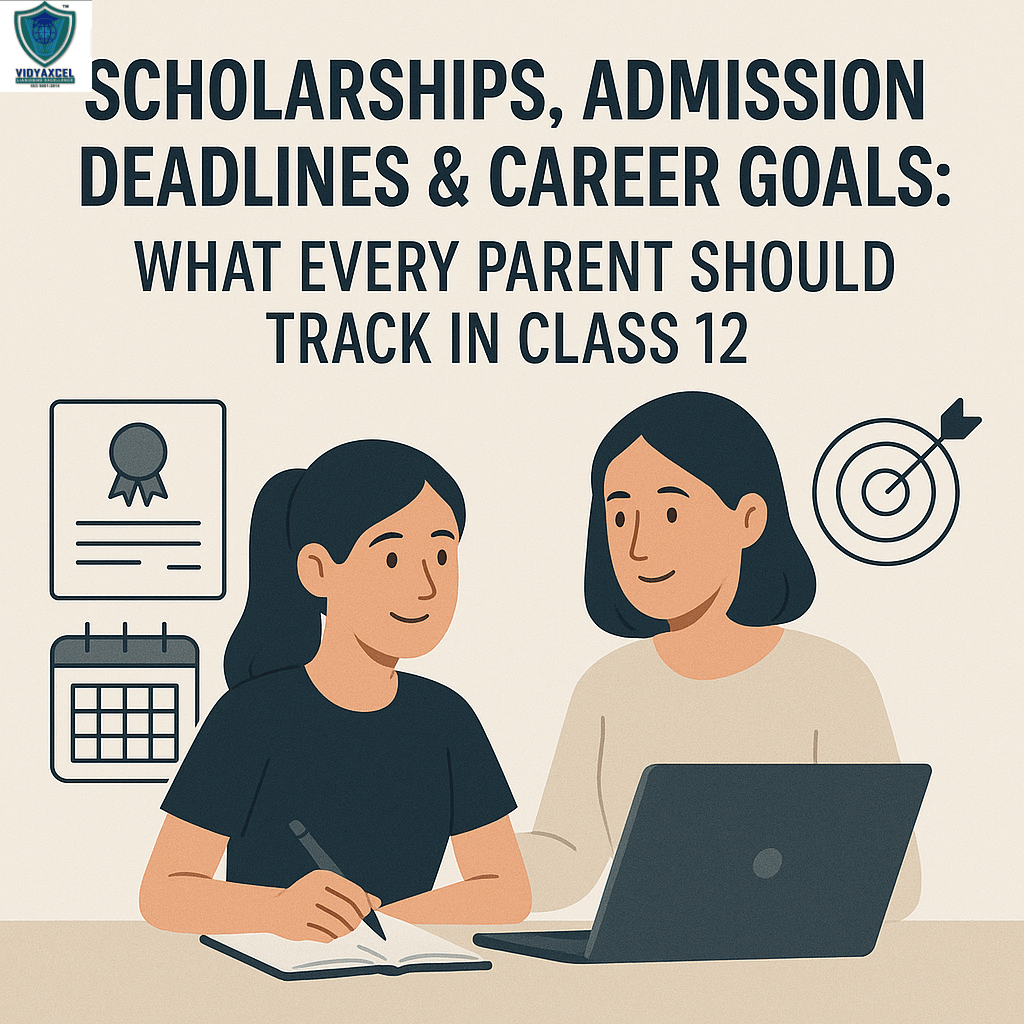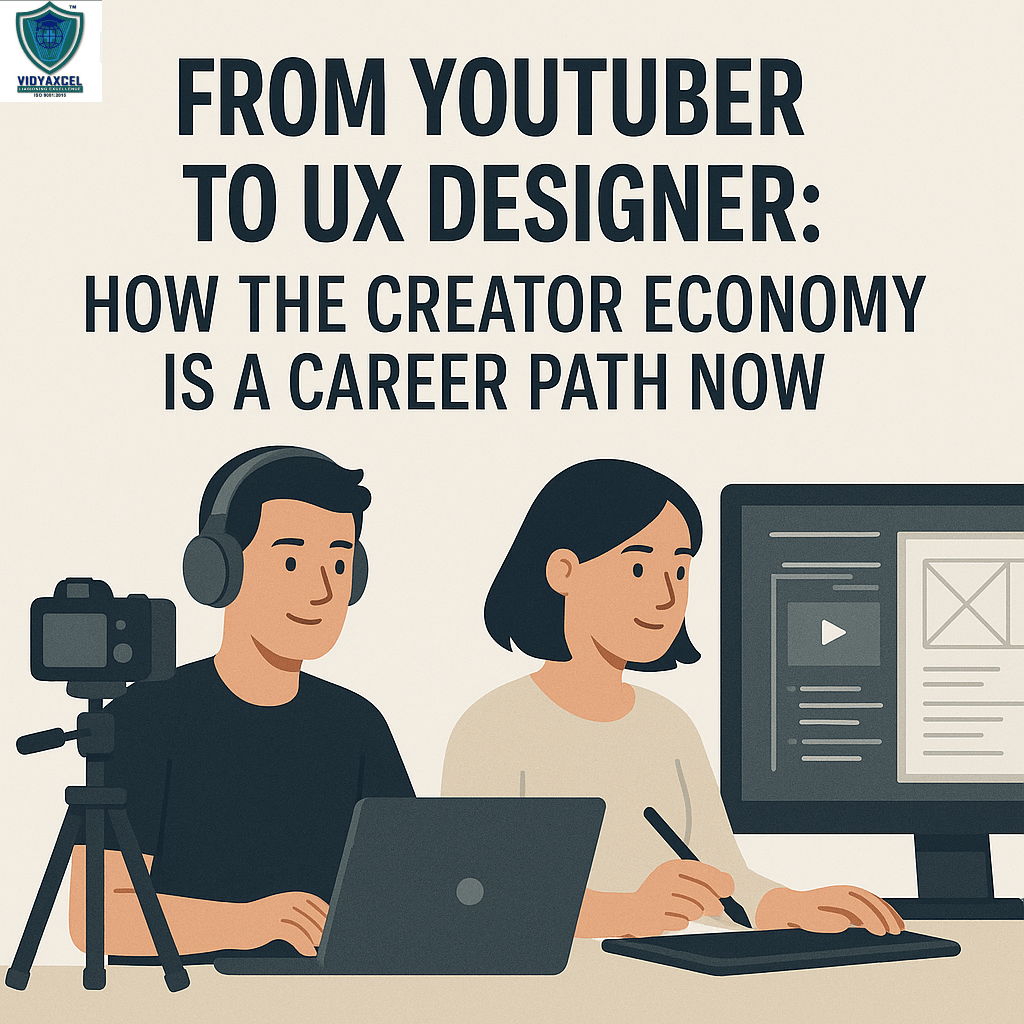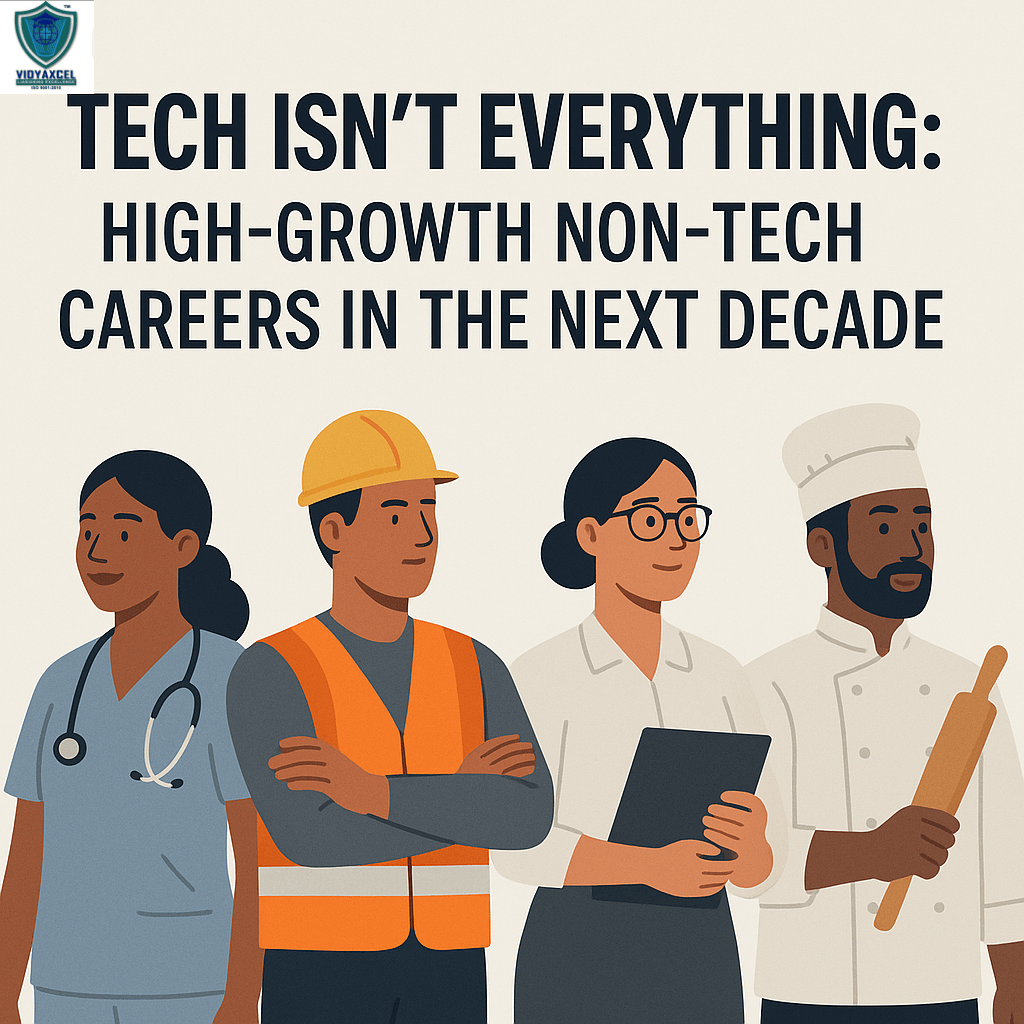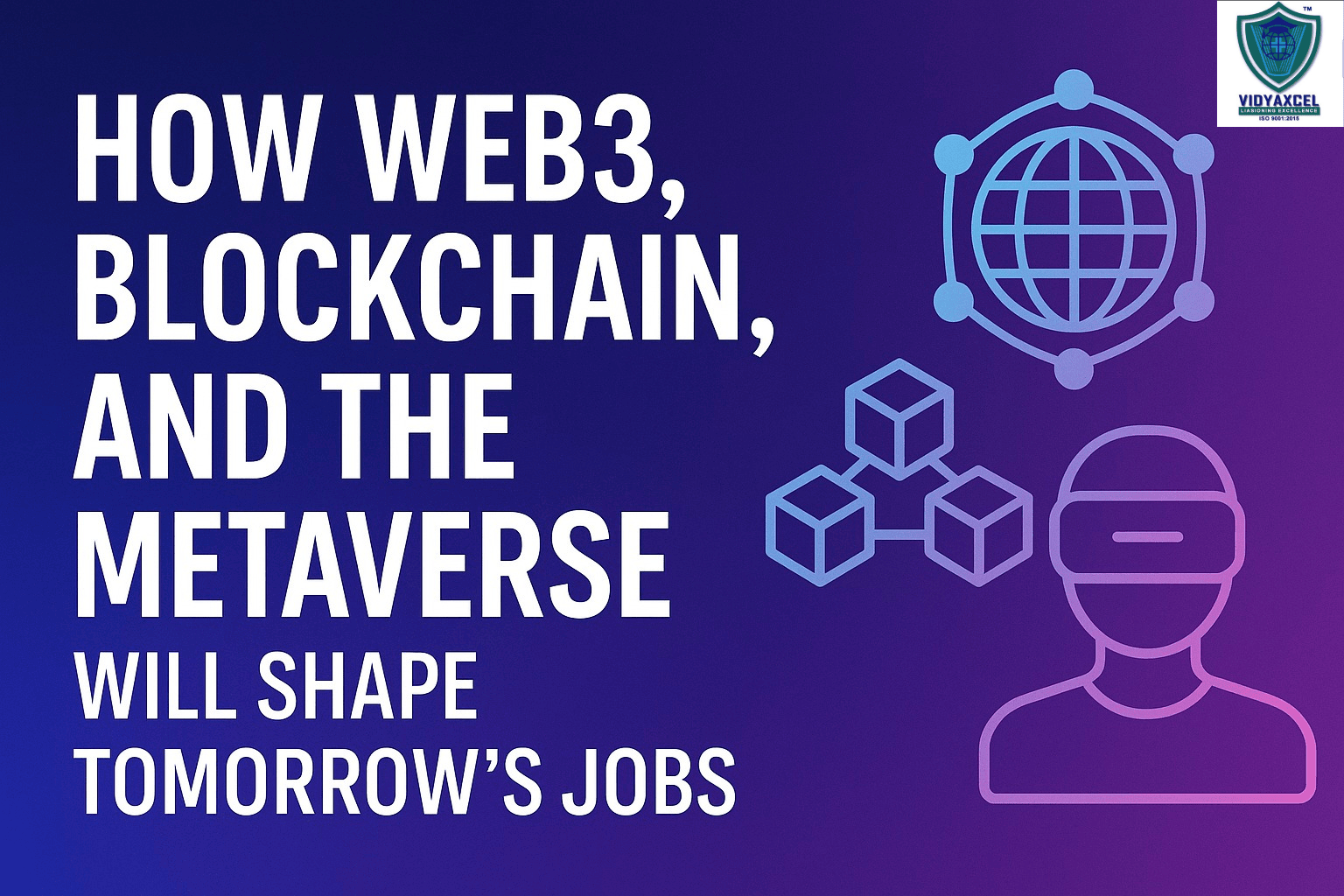Blog Details
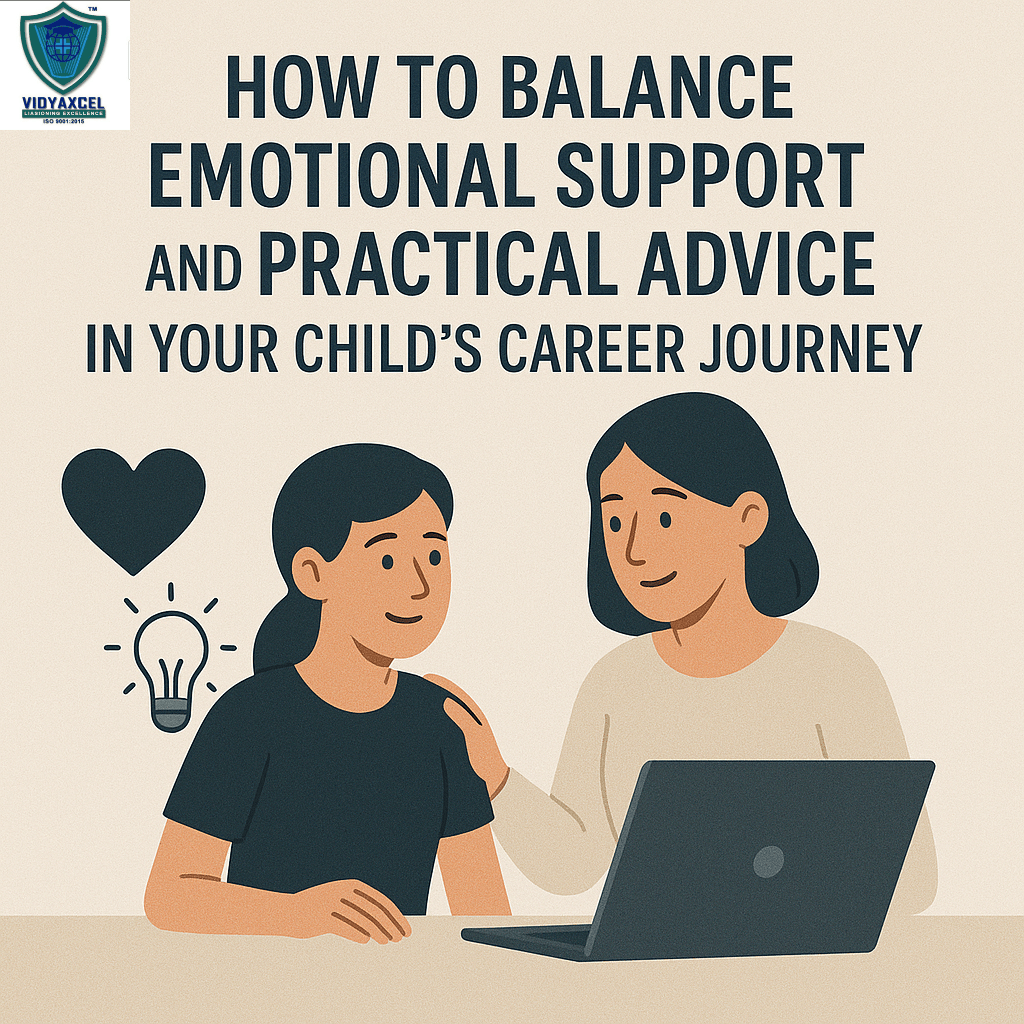
02Aug
How to Balance Emotional Support and Practical Advice in Your Child’s Career Journey
Parenting is an emotional commitment. Career planning, on the other hand, demands logic, timelines, and strategy. When these two worlds collide during your child’s crucial career decision-making phase, emotions often overpower objectivity, or practical concerns overshadow empathy. The modern parent is not just a provider—they are often a mentor, motivator, and emotional anchor. But the challenge lies in knowing how much to advise and when to step back. This blog is a deep dive into how to strike that delicate balance between offering practical guidance and emotional support throughout your child’s career journey.
1. Understanding Today’s Career Landscape
Before guiding your child, it’s vital to understand how career planning has changed:
🔄 Dynamic, Non-linear Paths
-
Careers are no longer one-track. A student of biology can become a UX designer or a content strategist.
-
Skills > Degrees in many modern professions.
🌍 Global and Gig-Oriented
-
The rise of remote jobs, freelancing, and creator economy opens new doors but adds confusion.
🧠 Passion vs Pressure
-
Social media glamorizes certain careers, while traditional streams are often seen as ‘safe bets.’
-
Children today seek purpose, not just paychecks.
2. Emotional Support: The Foundation of Career Clarity
Your child’s emotional ecosystem influences their choices more than you realize.
💛 a. Be a Listener First
Instead of saying, “You should become a doctor,” ask:
-
“What excites you about this field?”
-
“What kind of work do you want to do every day?”
Give them space to speak without immediately responding.
💬 b. Validate Their Feelings
Reassure them that:
-
It’s okay to be confused.
-
Not having a concrete plan doesn’t mean failure.
-
Fear and doubt are natural before big decisions.
🛑 c. Avoid Emotional Triggers
Never say:
-
“You can’t make money doing that.”
-
“You’ll regret not listening to me.”
-
“In our time, we didn’t have these luxuries.”
These statements may dismiss your child’s identity and discourage openness.
3. Practical Advice: Guiding with Strategy and Tools
Once you’ve built trust and openness, move toward structure.
📌 a. Introduce Career Tools
Help them explore using:
-
Aptitude tests (like DMIT, MBTI, or RIASEC)
-
Career Counselling Platforms (like Mindler, iDreamCareer)
-
Skill-building sites (Coursera, Skillshare, Internshala)
🧭 b. Career Mapping
Work with them to create:
-
A career roadmap (education, internships, certifications)
-
A skill-building plan
-
Backup options that align with their interests
📝 c. Timelines & Checklists
Assist with:
-
Entrance exam dates
-
Application deadlines
-
College requirements
-
Portfolio building or SOP writing
Make Excel trackers or Trello boards if necessary.
4. The Parent-Child Communication Framework
Use this three-layered communication model for balance:
| Layer | Role | Approach |
|---|---|---|
| Empathy | Parent | Listen, reassure, be non-judgmental |
| Strategy | Mentor | Suggest resources, timelines, tools |
| Accountability | Coach | Set goals together, review progress monthly |
This model allows you to switch hats based on the situation.
5. Common Career Conflicts – And How to Handle Them
⚔️ Conflict 1: "I want to be a photographer, not an engineer."
Response: Instead of rejecting, explore:
-
Career paths in photography (commercial, wildlife, fashion)
-
Earning potential and job market
-
Hybrid models: engineering + visual design
Action: Attend a photography workshop, meet a professional, or support a part-time internship.
⚔️ Conflict 2: “I don’t want to study abroad even if you want me to.”
Response: Respect emotional readiness. Focus on:
-
Their reasons (fear, insecurity, homesickness)
-
Exploring local or hybrid study options
Action: Suggest a summer program abroad or virtual international courses as a bridge.
⚔️ Conflict 3: “I don’t know what to do with my life.”
Response: Instead of panic, normalize exploration.
-
Share how most people figure it out gradually.
-
Encourage taking a gap year, volunteering, shadowing professionals.
Action: Make a list of fields to explore each month. Arrange short internships or projects.
6. Emotional Intelligence (EQ) in Career Decision-Making
Why EQ Matters:
-
EQ enables self-awareness, decision-making, resilience
-
Children with high EQ are more adaptable to career transitions
How Parents Can Build EQ in Children:
-
Encourage journaling to explore emotions
-
Let them fail occasionally to learn resilience
-
Practice gratitude and mindfulness as a family
7. The Role of Mistakes in Career Growth
Parents often see mistakes as threats to the future. But they are essential learning curves.
Encourage:
-
Safe risk-taking (changing streams, trying unconventional internships)
-
Reflection after failures
-
Avoiding “I told you so”—instead ask, “What did you learn?”
Success in careers today comes from trying fast, failing fast, and learning faster.
8. Building Trust & Independence Simultaneously
The goal is to raise an independent thinker, not just an obedient child.
🛠 Tips for Parents:
-
Let them take decisions, even if you disagree slightly
-
Step back in small areas (choosing electives, internships)
-
Show you trust them through actions—not just words
🔄 Maintain Weekly Career Conversations
-
Check progress without sounding like an inspector
-
Ask: “What support do you need from me this week?”
-
Avoid comparisons with cousins or neighbors
9. Recognizing When to Seek Professional Help
Sometimes, even the best support isn’t enough.
🚩 Signs:
-
Your child shows signs of anxiety, burnout, or apathy
-
Constant arguments around career
-
They are unable to commit or set goals
✅ Solution:
-
Approach a career counsellor or psychologist
-
Let your child talk to a mentor (outside of family)
-
Join parent support groups or workshops
10. Celebrating Small Wins Together
Motivation improves when success is acknowledged, not just outcomes.
Celebrate:
-
Completing a resume
-
Clearing an entrance exam
-
Finalizing a college shortlist
-
Getting rejected and bouncing back
Make career planning a positive experience, not a pressure-filled chore.
Conclusion
You don’t have to be a career expert to support your child. You just have to be a steady co-traveller—ready to listen when needed, guide when asked, and support always.
Your presence matters more than your opinions. Children thrive when they feel understood, not just instructed.
Balancing emotional support with practical advice isn’t easy. But it’s the most powerful gift a parent can offer on this lifelong journey.
FAQs
1. How can I support my child if I don't understand modern careers like blockchain or UX design?
You don’t need to be an expert. Focus on:
-
Helping them research and connect with professionals
-
Supporting online courses or mentorships
-
Encouraging exploration, not immediate answers
2. What should I do if my child constantly changes career goals?
This is natural, especially in teens. Instead of forcing one path:
-
Let them shadow professionals in different fields
-
Create a learning roadmap that builds transferable skills
3. Should I let my child take a gap year?
If it's well-planned (not just a break), a gap year can be:
-
Great for skill-building, travel, volunteering, mental clarity
-
A time to reflect before committing to a course
4. What if my child ignores my advice completely?
Reflect if your advice feels like instruction or support. Try:
-
Asking guiding questions
-
Sharing your own confusion during your career
-
Rebuilding trust through conversations, not commands
5. How do I avoid comparison pressure from society or relatives?
Stay grounded in your child’s uniqueness. Practice:
-
Gratitude for your child’s growth, not just grade
-
Setting boundaries when relatives interfere
-
Focusing on long-term growth, not short-term validation
Our Office: West Bengal, Maharashtra & Delhi.
For More Infomation about admission in Medical, Engineering, Management & Study in Overseas Details.
View Current Study Overseas, Medical, Engineering & Management Admission Details Video.
